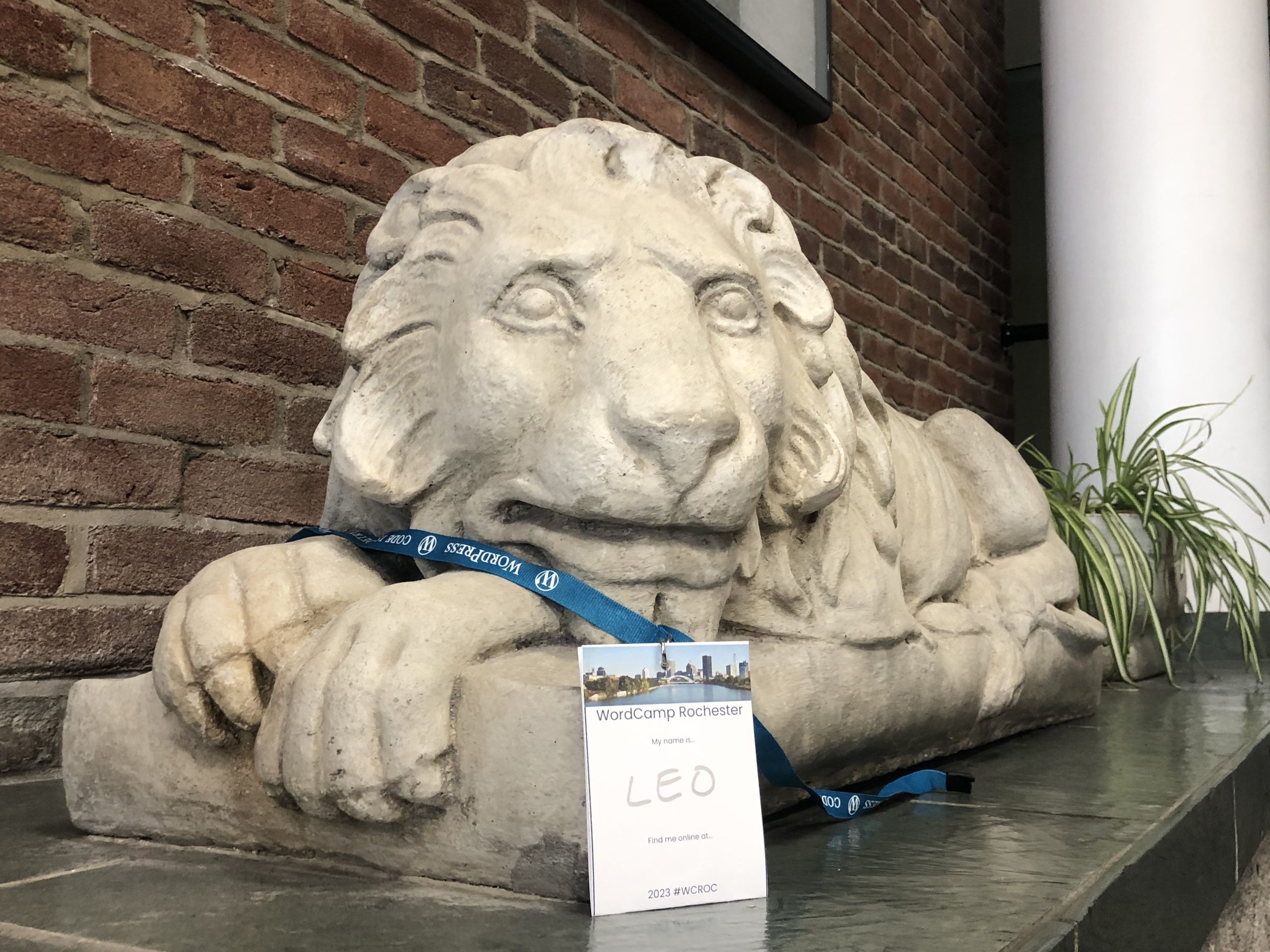I spent this past weekend with the WordPress community at WordCamp in Rochester, New York. This was my first time back to Rochester since their camp in 2019, and it was great to see everyone again.
As usual this camp was a mix of the local community, with a fairly strong Canadian contingent making the trip across the border. There has always been a strong support between our camps, with the Rochester crowd attending nearby camps in Toronto, Niagara, Hamilton, Ottawa and Montreal over the years.
It was a smaller event this year, with somewhere between 60 and 70 attendees. Honestly, sometimes I prefer these compared to the 600 or 800 attendee camps some of the larger cities attract. You have a better chance of seeing more of the talks, and a better chance of having good conversations with the other attendees.
There were some great sessions. Starting off with a great keynote by South Carolina based WordPresser Nyasha Green. It’s great seeing the work she’s doing mentoring people in underrepresented communities in WordPress around the world along with some great stories of her family history.
Jonathan Desrosiers, a sponsored WordPress Core contributor gave a great talk on the Actions and Filters system that allows WordPress to be as extensible as it is. I enjoyed this talk in part because I gave a talk on the same subject in 2015. It’s a great reminder that there are always new people in the community who still need to learn “the basics”. Not every talk needs to be about the latest and greatest new features.
The next two talks I attended were both around artificial intelligence. It’s hardly a surprise that AI was a popular subject, as it has been upending everything in the last while, with new AI products being announced, it seems, daily.
Christopher Ross gave a talk explaining what AI is and isn’t, with some great examples of what it can (listen to Johnny Cash singing Barbie Girl) and can’t (see this McDonalds commerical) do well.
Robbie Adair gave a talk on how to use AI to speed up the process of building client websites using AI tools. I loved her tip of using AI generated content as placeholders instead of Lorem Ipsum to give clients a better idea of what you’re looking for! This applies to both text and images. The tool I’m looking forward to trying out the most though is ScribeHow, for automating “how to” documentation!
I spent a while in the “hallway track” speaking with other attendees and sponsors. As always, these are some of the most interesting discussions, often involving group brainstorming sessions when someone brings up a problem they’re working on. It was also a good chance to promote WordCamp Canada, which we’re hoping will happen in July next year. If you think you’d be interested in attending, please fill our the our survey here.
Next, I sat in on my friend Matt Graham‘s talk on mental health while working remotely. This is an important subject that has been discussed more in recent years. It was good to hear Matt’s own personal experiences with mental health working from home, as well from those attending the session, which turned into more of a group discussion than a talk. Remember – you’re not alone.
I finished off my camp experience attending a panel discussion being part of an open source community, moderated by WordCamp Rochester lead organizer Michelle Frechette and panelists Nyasha Green, Shanta Nathwani, Kiera Howe, Jonathan Desrosiers and Marcus Burnette.
As always, I’d like to offer a huge thank you to the organizers, sponsors, volunteers, speakers and attendees who made Saturday such a fun and educational day.

